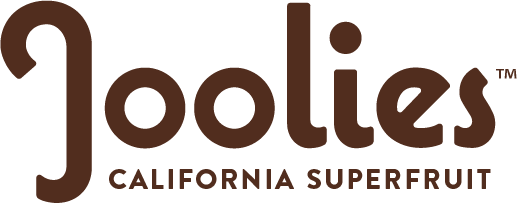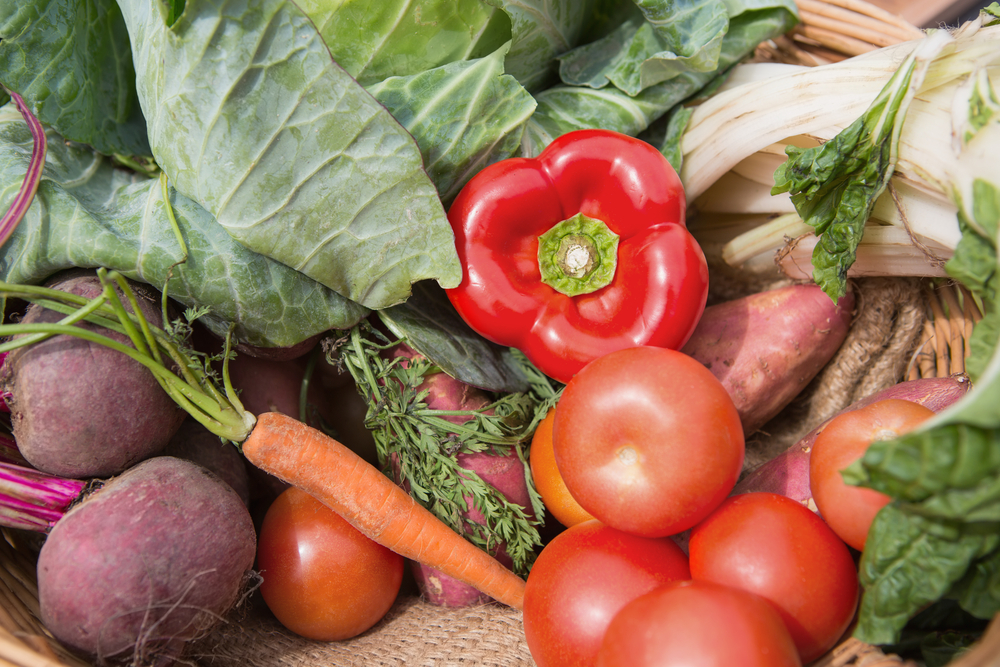Add these foods to your diet to get varied sources of potassium, K?
Let’s play the word association game. If I say “potassium,” what do you think of?
Odds are, “bananas.”
When it comes to potassium, an essential mineral needed for everyday function, bananas tend to hog the spotlight.
And not for nothing! To give you some context, current research suggests that the average healthy adult should get about 2600-3400 mg of potassium from their diet each day to maintain good health. One medium banana has about 422 mg - roughly 12-16% of someone’s recommended daily intake of potassium.
While bananas certainly pack a punch, a healthful diet needs a variety of whole food-based nutrients to keep you in tip-top shape.
In this guide we’ll discuss some foods that are sources of potassium besides bananas to help inspire you to include more whole food-based sources of this essential mineral in your diet.
First, what is potassium?
Potassium is an essential mineral that’s also an electrolyte, abbreviated as “K” on the periodic table. One fundamental property of potassium is that it counteracts sodium in our cells - when sodium comes in, potassium goes out.
If this sounds simple, it’s because it is! But this simple interaction keeps us alive and translates into real effects that we can see, such as fluid regulation, nerve signaling, and muscle contractions. When our potassium levels are out of whack, we might see things like high blood pressure and muscle cramps.
This potassium-sodium interaction is especially significant given the fact that we typically get too much sodium in our diets, particularly from highly processed foods. Coupled with the fact that most people don’t reach their recommended servings of fruits and vegetables, this spells trouble in the chronic disease department.
Luckily, potassium is found in many fruits and vegetables as well as some animal products that you might already have in your kitchen. And if not, no worries! There’s so many healthful food sources of potassium that you’ll be sure to find a few on this list that you enjoy and can add to your cart next time you shop.
Top 10 Food Sources of Potassium
The following foods are all sources of potassium. Mix and match them throughout the day to create fun meal combinations and contribute to your daily potassium intake!
- Avocados
Avocados are rich in every sense of the word - texture, flavor, and nutrients. Most people associate avocados with their heart-healthy monounsaturated fats, but that’s not all they have going on.
One avocado has 975 mg of potassium, meaning that if you eat half an avocado you’ll be 14-19% of your way to your daily recommended amount. Holy guacamole!
Add avocados to your salad, make them into guac, or just drizzle some lemon juice on them and snack on them alone.
- Potatoes
Don’t let potatoes’ reputation let you count them out of a balanced diet! White potatoes have plenty of nutrients, especially in the skin. The bad rap comes from the saturated fat-filled toppings associated with white potatoes - the sour cream, bacon, and gooey cheeses. That, and the frying methods we sometimes use.
However you slice it - potayto, potahto. White potatoes have a wide range of nutrients including fiber and micronutrients like potassium. In fact, one medium Russet potato contains about 952 mg of potassium, putting you at about 28-37% of your daily recommended intake.
Note that when you boil potatoes (and other foods) you leech out some of the micronutrients, so the amount you’re actually getting might be lower. Bake your potatoes with the skin on to preserve these compounds.
- Lentils
Whatever lentil you prefer - red, black, or in between - you’re making a healthful addition to your diet. Lentils as a whole are high in fiber, protein, phytochemicals, and micronutrients including potassium. This food is well associated with benefits such as decreased risk of chronic disease and gut health.
No matter which lentils you’re feeling in the moment, one cup will give you about 731 mg of potassium, or about 21-28% of your daily recommended amount.
Note that if you need to watch your sodium intake, canned lentils have added sodium. You can reduce some of this sodium by rinsing off your lentils before eating.
- Apricots
Apricots can be a fun addition to your salads or alone as a snack. They’re high in antioxidants and micronutrients like vitamin C and vitamin A, in addition to potassium. One apricot has 91 mg of potassium, or about 3-4% of your daily recommended amount. But who stops at just one? They’re so tiny, have a few! One cup of fresh sliced apricots can get you from 13-16%.
If you’re picking dried apricots, they’ll be an even more concentrated source of these benefits since their volume is reduced.
- Dairy
Dairy is another nutrient-dense class of food that sometimes gets a bad rap because of its fat content, but can be a healthful addition to a balanced diet. Dairy is a good source of protein and micronutrients such as B vitamins, calcium, and potassium.
Regardless of the milk fat percentage you choose, you’ll be getting a concentrated dose of vitamins and minerals. One cup of milk will give you around 370 mg of potassium, or 10-14% of your recommended amount.
- Medjool Dates
Medjool dates are a sweet nutritional powerhouse guaranteed to jazz up your daily routine. Snack them on their own or try a new date recipe to see for yourself why they’ve been loved for thousands of years.
Medjool dates contain fiber, antioxidants, and micronutrients including copper and potassium. Just one date has 167 mg of potassium, meaning a handful of dates could get you up to 20-26% (or more, if you have big hands)!
If you’re worried about the sugar content, know that medjool dates are actually a low-glycemic food. Snack on!
- Pork
Lean cuts of pork are chock-full of essential nutrients while being naturally low in sodium and varying amounts of saturated fat. The leaner the cut, the lower the amount of saturated fat, meaning the easier it is on your arteries (sorry @bacon. We still love you in moderation.)
On average, a 3 oz serving of lean pork will give you about 360 mg of potassium, or 11-14% of your daily needs.
Note that while pork is naturally low in sodium, many pre-packaged options will have sodium added and can contribute significantly to your daily sodium intake.
- Leafy Greens
Popeye was onto something. Dark leafy greens like spinach and bok choy are packed with micronutrients and fiber that’ll help support optimal health and prevent chronic disease, all with zero guilt.
Eat them raw or cook them down into dishes to concentrate the benefits even further - consider the fact that one cup of raw spinach has about 167 mg of potassium, while 1 cup of cooked spinach has about 840 mg! That’s a pretty big jump - from 5-6% up to 25-32% of your estimated daily potassium needs.
We can’t guarantee you’ll be more like Popeye after this, but we also won’t stop you from trying.
- Tomatoes
Whole, squashed, pureed, ketchup-ified - if there’s tomatoes in it, you’ll be getting some potassium.
While it would take quite a bit of ketchup for you to reach your micronutrient goals (not that we’re here to judge), adding tomatoes to your diet is a good way to get not only vitamins A, C, and other micronutrients, but a good dose of potassium.
One cup of cherry tomatoes will clock you in at 353 mg, or 10-14% of your daily potassium needs. Add them to salads, pop ‘em whole, or make that TikTok goat cheese dip that’s been going around. You know the one.
- Chicken
You’d be hard pressed to find a more versatile meat than chicken. Whether you’re giving in to some late night nugget cravings or are in the peak of body building, there’s a version that’ll satisfy those buds. Talk about range!
Flavor aside, some cuts of chicken and methods of preparation are more healthful than others. Remove the skin from the chicken and avoid frying to limit saturated fat intake, and watch out for added sodium. Go for leaner cuts, like the white meat in the breast and wings.
The potassium content in your chicken will vary marginally depending on whether you go for white or dark meat, and if you remove the skin. A 3.5 oz serving will typically give you around 230 mg of potassium, or 7-9% of your daily goal. Consider pairing your chicken with other healthful sources of potassium to increase the total!
So... food or supplement?
Understand that when we focus on sheer numbers, whether it’s calories or milligrams of potassium, we’re taking a reductive approach to nutrition. You can’t just pop a few vitamins and call it a day.
Science proves that whole food sources of micronutrients are absorbed and used better by our bodies than supplement sources. Not to mention, when we focus on one single nutrient, we ignore the vast complex benefits that a food provides!
For optimal health, consume a variety of whole food sources of nutrients. This advice will be true no matter what research and trendy fads come tomorrow. If you have a concern about a deficiency, consult your doctor, who can run tests to confirm whether or not you would benefit from a supplement. There is no benefit to over-supplementation, and it is not recommended to use supplements as prophylaxis. The best approach to your tip-top self is a balanced diet!
Note that certain conditions and medications will change your micronutrient requirements. For questions about your individual potassium needs, ask your doctor.
Until then, incorporate these tasty foods into your diet to not only rake in some potassium, but their other benefits!








